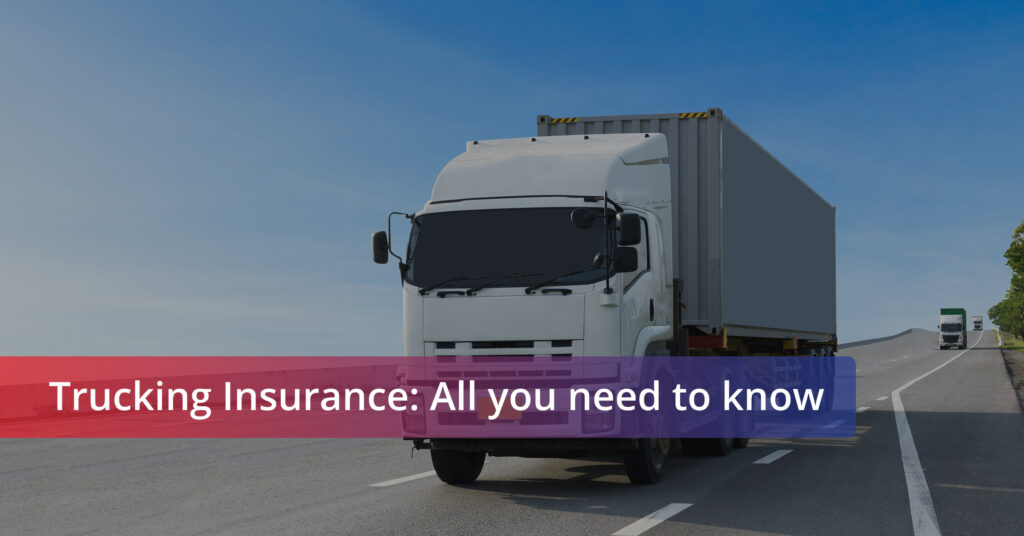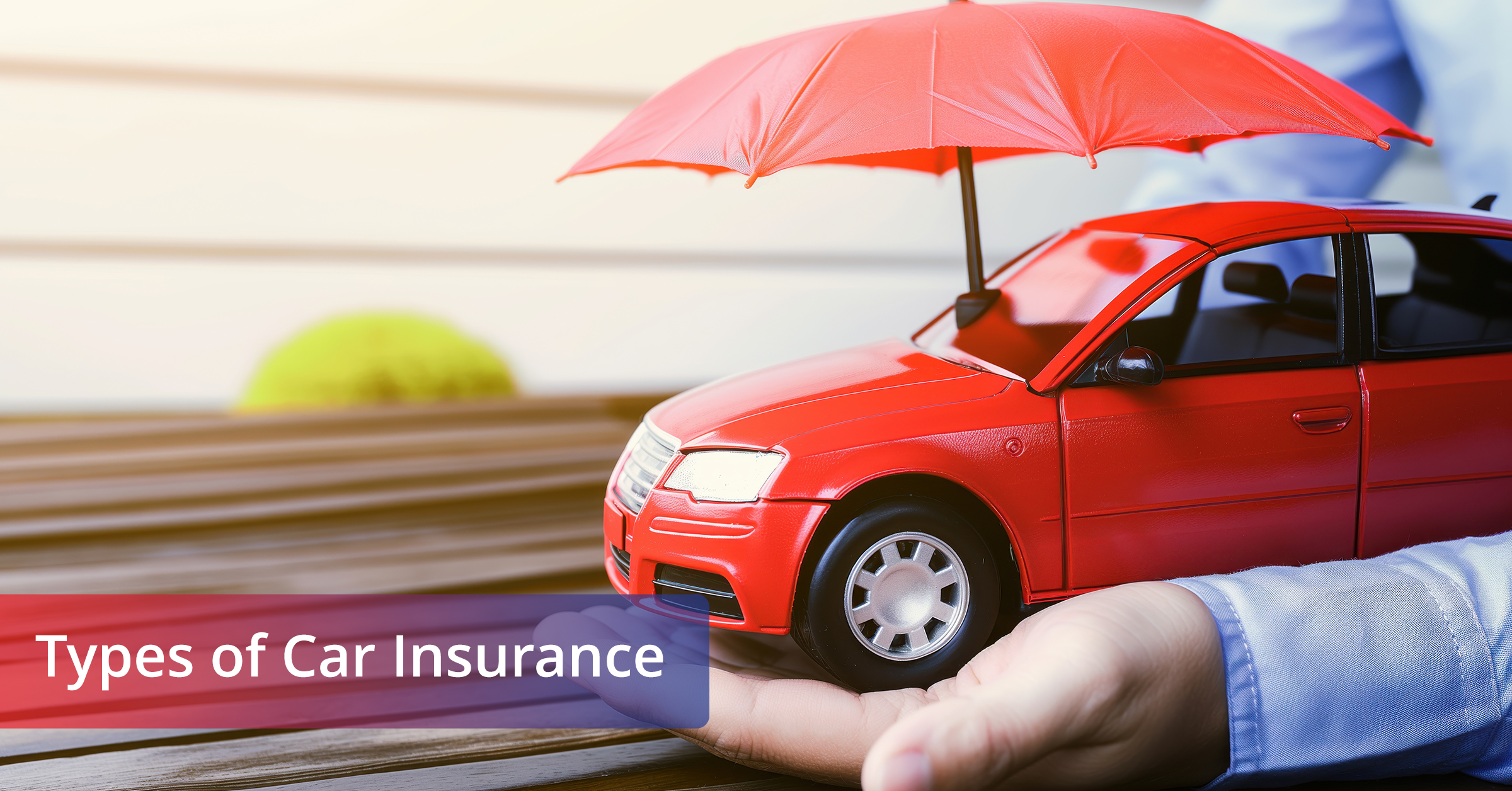Whether you’re a long-haul trucker or an independent owner-operator, you need owner-operator truck insurance. This Insurance covers medical bills and protects your drivers, assets, and livelihood. It’s tailored to different situations and handles lawsuits for property damage and injuries. Most states require auto liability coverage, which helps with costs in case of an accident.
Becoming an owner-operator in trucking is exciting. You get to be your boss and have the potential for financial success. But, with independence comes responsibility.
That’s why having the right insurance for owner operators is not just important—it’s a smart way to safeguard your trucking business from unexpected setbacks.
Owner Operator Truck Insurance Coverages
Owner-operator truck insurance, also known as trucking insurance, provides tailored coverage designed to protect commercial trucking companies from the particular dangers they face while on the move. Another term often used is owner operator trucking insurance, which highlights the personalized protection independent truckers need to stay compliant and secure on the road. It is important for the transportation sector as it provides a robust barrier against various road hazards and ensures trucking companies’ economic survival.
This comprehensive Insurance is essential to lowering risks and promoting the efficient running of commercial trucking companies. Truck insurance covers primary liability, which handles losses and injuries to other drivers on the road brought on by the truck driver. Physical damage coverage is a further essential aspect that protects the truck itself from theft, vandalism, and accidents. More specifically, the categories of liability coverage available with Owner operator insurance policy are:
Legal Coverage
Commercial truck insurance can handle legal defense costs for a trucking company in case of an accident. It also offers protection against vandalism and auto theft. Best for:
- Bodily injury caused by your truck
- Theft of a semi-truck
- Physical damage coverage
General Liability Coverage
Accidents that cause injury to individuals or property other than your business are covered by a general liability policy. This covers situations such as slip-and-fall injuries that occur in dispatch offices or on storage sites. Perfect for:
- Medical costs incurred by other parties
- Property damage to third parties
- Lawsuits for slander and libel
Workers’ Compensation
Workers’ compensation is mandated by most states for trucking companies that employ workers. Furthermore, it pays for lone owners’ work-related medical expenses that their personal health insurance might not. Best for:
- Employee medical expenses
- Disability benefits
- Lawsuits from employee injuries
Business Owner’s Policy (BOP)
Purchasing commercial property and general liability insurance together can be more affordable for owner-operators when done through a BOP. It offers protection against frequent lawsuits as well as property harm. Ideal for:
- Events that cause injury to clients
- Items that are missing or broken
- Insurance against business interruption
Key features of Commercial Truck Insurance Policy
In general, the key features of commercial truck insurance include:
- Comprehensive Coverage: Covers weather damage, fire, vandalism, and other non-accident-related damages to the tractor-trailer.
- Protection Against Collision: Helps with the tractor trailer’s replacement or repair following an accident.
- Payments for Medical Care: Helps pay for medical expenses up to a certain amount if a passenger or the tractor-trailer driver gets injured in an accident. It may also pay for missed wages.
- Aid for Uninsured/Underinsured Motorist: Helps with tractor-trailer replacement or repair following an uninsured or underinsured third-party collision.
Types of Trucks Covered in Trucking Insurance
Compared to driving a corporate car, operating an 18-wheeler involves multiple risks and obligations. Insurance for automobiles, cabs, and vans, which are smaller commercial vehicles, is insufficient to cover the potential risks of a large semi-truck. Insurance for Truckers is made specifically to protect truck drivers, their businesses, and their assets. It is designed to meet the particular requirements and difficulties faced by the transportation sector.
Weight Rating for Truck Insurance:
Commercial trucks are categorized by gross vehicle weight rating. There are eight categories of commercial trucks in the US i.e. Class 1 to Class 8 truck insurance. The weights are listed as follows:
- Class 1: 6,000 pounds and under
- Class 2: Weights from 6,001 to 10,000 pounds
- Class 3: Weights from 10,001 to 14,000 pounds
- Class 4: Weights from 14,001 to 16,001 pounds
- Class 5: weights between 16,001 and 19,500 pounds
- Class 6: Weight range: 19,501–26,001 pounds
- Class 7: Weight range: 26,001–33,000 pounds
- Class 8: more than 33,000 pounds
The common types of trucks covered in truck and trailer insurance are:
Semi-Trucks
Semi-trucks are important for carrying heavy loads across the country. These big trucks can weigh up to 80,000 pounds when fully loaded. The truck insurance offers coverage for this vehicle are:
- Primary liability Covered: Helps if there’s an injury or damage to someone else.
- Physical Damage Coverage: Protects your truck from losses after accidents, fires, or theft.
- Bobtail Coverage: If you drive your truck without a trailer, it covers you on and off the road.
- Cargo Coverage: Protects against loss or harm to the items you’re carrying.
Dump Trucks
Dump trucks are used for carrying lots of material like sand and gravel. If you own and operate dump trucks, these are the coverage that your owner-operator truck Insurance will offer:
- Auto Liability Coverage: Covers medical bills and property damage if there’s an accident.
- Physical Damage Coverage: Helps get your dump truck back on the road after an accident, theft, or vandalism.
- General Liability Coverage: Protects you from legal action if one of your trucks causes injuries to someone.
Hot Shots/Tow Trucks
These trucks carry small, time-sensitive loads. The owner-operator insurance usually includes coverage for repairs, damage to your vehicle or someone else’s, medical expenses, loss of cargo, and legal expenses.
Heavy Equipment
These are big machines like excavators or tractors. Coverages might include:
- Rental Reimbursement Coverage: This pays for the price of borrowing equipment while yours is being repaired.
- Business Interruption Coverage: Protects you from losing money if your business is unexpectedly stopped by an accident, breakdown, or theft.
Truck Insurance Claim Process
The process for claiming Truck insurance in the US typically follows these steps:
Initial Report
Report the incident to the insurance company promptly. Give the important information—the accident’s date, time, and location—along with a brief account of what happened. Get in touch with authorized officials, including the police, and request an accident report if there are injuries or significant property damage as a result of the occurrence.
Exchange Information and Document the Scene
Exchange information with the parties involved, including names, contact details, insurance information, and vehicle details. Take pictures of the damaged vehicle, the accident scene, and any casualties. If at all possible, get witness statements. If there are injuries, get medical help right away. Maintain a record of all prescription medications, medical procedures, and associated costs. Obtain quotes for the damaged vehicle’s repairs.
Notify Your Insurance Company
Notify your Trucking Insurance company about the incident as soon as possible. Provide them with all the information and documentation gathered. Your claim will be handed to an adjuster by the insurance company. Liability, damages, and an investigation into the incident will all be handled by the adjuster.
Settlement Negotiation
The insurance company will work with you to reach a fair settlement. Negotiate terms, ensuring all damages and expenses are appropriately covered. Once an agreement is reached, the Truck and trailer insurance company will provide a settlement payment. This may cover vehicle repairs, medical expenses, and other applicable costs.
Closure
In exchange for the settlement, you may be required to sign a release form indicating that you won’t pursue further claims related to the incident. The claim is considered closed once the settlement is agreed upon and all necessary paperwork is completed.
Throughout the process, communication with your insurance company is essential. Provide accurate and timely information to facilitate a smoother claims process.
Things to Keep in Mind While Buying Trucking Insurance
The options for commercial truck insurance vary according to your trucking company’s particular needs and the type of truck. These are important things to take into account while choosing the right coverage for your commercial trucks. When comparing coverage options, it’s essential to understand the specific benefits offered by owner operators insurance, especially if you’re running your own rig or managing a small fleet.
Consider Your Truck Type
Before purchasing commercial truck insurance, the first step is to consider the type of truck you own. Determine if it falls under the Light-Duty, Medium-Duty, or Heavy-Duty categories. This helps in finding the right insurance coverage and identifying if specialized coverage is necessary.
Understanding Costs
When it comes to trucking insurance prices, they can vary based on your specific situation. Insurance companies look at a few things to figure out how much you’ll pay:
- Your age
- Driving record
- The condition of your truck
- The kind of stuff you’ll be hauling
- State and federal rules
- Where and how much you’ll be driving
Here are simple ways to bring down your insurance expenses:
- Hire or keep drivers with good driving records.
- Focus on staying safe because accidents or tickets can raise your rates.
- Think about raising your deductibles. This means you’ll pay more if something happens, but it can lower your monthly payments.
- Look for discounts, like paying all at once for a certain period.
Choosing the Right Insurance Company
Avoid randomly selecting a truck driver insurance provider. Research companies thoroughly, check their reputation, read reviews, and assess the coverage they offer. Ensure the company aligns with your insurance needs and has a solid reputation.
Choosing the Right Policy
There are several basic coverage plans to consider, such as liability, collision, and comprehensive coverage. Compare monthly premiums and coverage details. Decide whether you prefer a higher deductible for lower premiums or vice versa. Review your Insurance annually to ensure it still meets your needs, and consider increasing coverage if necessary. Seek guidance from an insurance expert to understand coverage options and make informed decisions.
Where to Buy Owner-Operator Truck Insurance?
When it comes to insuring your tractor-trailer, it’s important to choose a provider that understands the unique needs of owners and drivers. Exceed Insurance specializes in commercial and owner-operator truck insurance. We tailor coverage to meet your specific requirements. Check out the policies, offers, and coverages today to choose yours!
Frequently Asked Questions
Why do I need truck Insurance?
Commercial trucks tend to be larger than other types of vehicles. It is more complicated to deal with a truck in accidents and injuries than regular cars. The majority of the time, commercial trucks are driven farther and more frequently. Accordingly, driving a business truck frequently requires a separate license, registration, and Insurance. Commercial truck insurance is obligatory for reducing risks and assisting commercial trucking companies in functioning safely.
Is Trucking Insurance Mandated By Law?
Yes! Owner-operators and motor carriers operating DOT-regulated commercial motor vehicles are required by federal law to get public liability insurance for their vehicles. Many states additionally require commercial truck and trailer insurance for all tractor-trailers, including leased vehicles, in contravention of DOT requirements.






